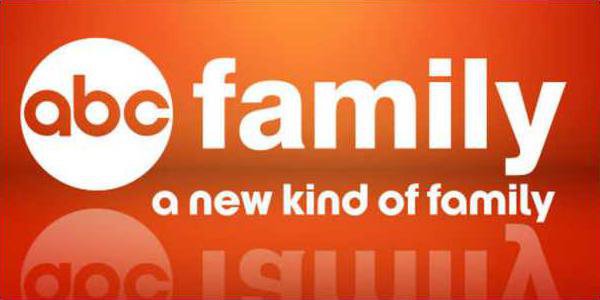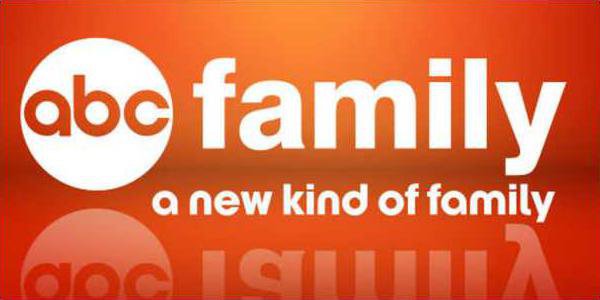In the coming days, ABC Family officially will no longer be about families.
As announced last week, the channel, made popular by hit TV shows such as Pretty Little Liars and movie marathons like the 13 Nights of Halloween, will be renamed Freeform in an attempt by the network to refine its audience, according to Mashable.
Specifically, Freeform is hoping to reach the becomer audience, or those ages 14 to 34, also knows as millennials, Mashable reported.
"Freeform evokes the spirit and adventure of our audience," said Tom Ascheim, ABC Family president, in a statement quoted by Mashable. Freeform will deliver new, exciting original content as well as all the favorite shows our viewers already love on ABC Family."
This will be the first time in more than three decades since it was an extension of televangelist Pat Robertsons Christian television ministry in 1977 that the channel steps away from its "family branding," according to Mashable. For example, in 2001, the network was called The Family Channel and was then renamed the Fox Family Channel before it took on the ABC Family name in 2001, Mashable reported.
One look at ABC Familys lineup shows that it offers very little for families, especially ones of the traditional nature, which is why the move makes sense.
ABC Family dropped much of its family friendly content about 10 years ago when, as Slates Laura Bradley pointed out, the channel added the slogan A new kind of family in 2006 once it started inching toward edginess, pushing against the constraints of its family-friendly rep, like Kyle XYZ, a story about an alien boy who comes to Earth.
Since that time, more edgy content has come to the channel. The teens-with-tech show Pretty Little Liars tells the tale of a group of high schoolers who lie about the death of a friend. Scandal, infidelity and premarital physical interactions make up the bulk of the show.
Similarly, The Secret Life of the American Teenager centered on a teenage girl who has an unplanned, out-of-wedlock pregnancy while in high school.
That five-season series was not unlike another ABC Family show, Baby Daddy, which focuses on a bartender who has to take care of a baby on his own after his ex-girlfriend leaves the baby at his doorstep.
The change to edgy shows hasnt really worked for the channel recently, though. According to The Wall Street Journal, ABC Family averaged 1.2 million viewers in the 2014-15 season, 7 percent less than the year before. And in the 18-to-34 bracket, the network drew 338,000 viewers, which was a 6 percent decline from the previous season, WSJ reported.
The ratings drop is why the network decided to make the change.
Our core viewers know what to expect from our content, said network president Tom Ascheim to the Los Angeles Times. But among nonviewers, theres a very different perception of our brand. We overindexed on two adjectives: one was family friendly and the other was wholesome. It led us to believe that the huge perception gap is based on our name.
The channel is expected to keep some family friendly content, though, like The 700 Club, a Christian talk show thats long aired on the channel.
But overall, experts say the change will help TV viewers seeking family friendly content avoid the edgy station.
ABC Family probably isnt the greatest name for them, Jason Maltby, a media expert, told WSJ. Maybe they are looking at their audience and brand and thinking ABC Family doesnt do it justice.
As announced last week, the channel, made popular by hit TV shows such as Pretty Little Liars and movie marathons like the 13 Nights of Halloween, will be renamed Freeform in an attempt by the network to refine its audience, according to Mashable.
Specifically, Freeform is hoping to reach the becomer audience, or those ages 14 to 34, also knows as millennials, Mashable reported.
"Freeform evokes the spirit and adventure of our audience," said Tom Ascheim, ABC Family president, in a statement quoted by Mashable. Freeform will deliver new, exciting original content as well as all the favorite shows our viewers already love on ABC Family."
This will be the first time in more than three decades since it was an extension of televangelist Pat Robertsons Christian television ministry in 1977 that the channel steps away from its "family branding," according to Mashable. For example, in 2001, the network was called The Family Channel and was then renamed the Fox Family Channel before it took on the ABC Family name in 2001, Mashable reported.
One look at ABC Familys lineup shows that it offers very little for families, especially ones of the traditional nature, which is why the move makes sense.
ABC Family dropped much of its family friendly content about 10 years ago when, as Slates Laura Bradley pointed out, the channel added the slogan A new kind of family in 2006 once it started inching toward edginess, pushing against the constraints of its family-friendly rep, like Kyle XYZ, a story about an alien boy who comes to Earth.
Since that time, more edgy content has come to the channel. The teens-with-tech show Pretty Little Liars tells the tale of a group of high schoolers who lie about the death of a friend. Scandal, infidelity and premarital physical interactions make up the bulk of the show.
Similarly, The Secret Life of the American Teenager centered on a teenage girl who has an unplanned, out-of-wedlock pregnancy while in high school.
That five-season series was not unlike another ABC Family show, Baby Daddy, which focuses on a bartender who has to take care of a baby on his own after his ex-girlfriend leaves the baby at his doorstep.
The change to edgy shows hasnt really worked for the channel recently, though. According to The Wall Street Journal, ABC Family averaged 1.2 million viewers in the 2014-15 season, 7 percent less than the year before. And in the 18-to-34 bracket, the network drew 338,000 viewers, which was a 6 percent decline from the previous season, WSJ reported.
The ratings drop is why the network decided to make the change.
Our core viewers know what to expect from our content, said network president Tom Ascheim to the Los Angeles Times. But among nonviewers, theres a very different perception of our brand. We overindexed on two adjectives: one was family friendly and the other was wholesome. It led us to believe that the huge perception gap is based on our name.
The channel is expected to keep some family friendly content, though, like The 700 Club, a Christian talk show thats long aired on the channel.
But overall, experts say the change will help TV viewers seeking family friendly content avoid the edgy station.
ABC Family probably isnt the greatest name for them, Jason Maltby, a media expert, told WSJ. Maybe they are looking at their audience and brand and thinking ABC Family doesnt do it justice.








